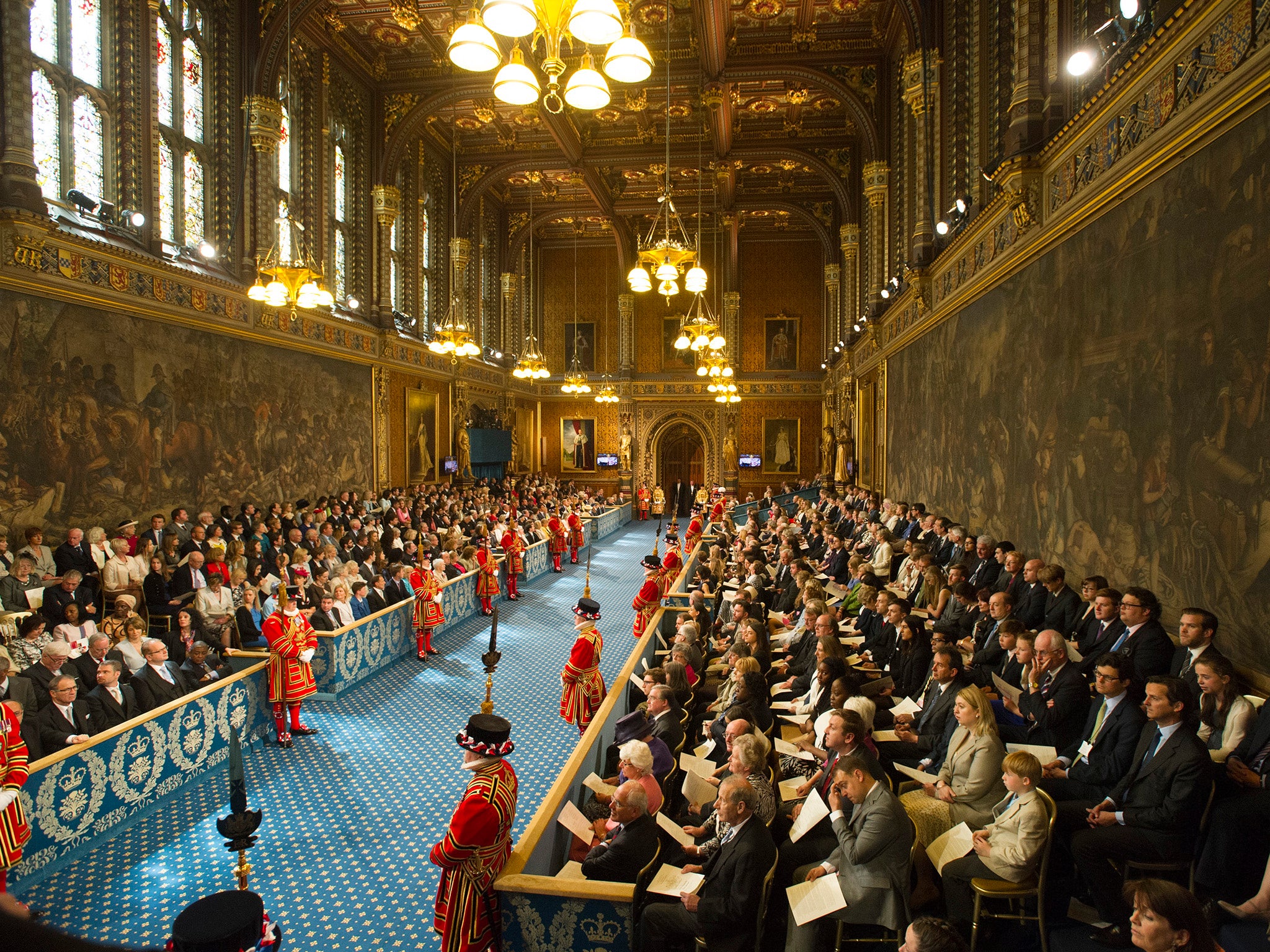Life Peerages Act at 60: The reforms that made the House of Lords more democratic
Women allowed to take seat in second chamber of Parliament for first time in history thanks to timely modernising legislation introduced in 1958

Your support helps us to tell the story
From reproductive rights to climate change to Big Tech, The Independent is on the ground when the story is developing. Whether it's investigating the financials of Elon Musk's pro-Trump PAC or producing our latest documentary, 'The A Word', which shines a light on the American women fighting for reproductive rights, we know how important it is to parse out the facts from the messaging.
At such a critical moment in US history, we need reporters on the ground. Your donation allows us to keep sending journalists to speak to both sides of the story.
The Independent is trusted by Americans across the entire political spectrum. And unlike many other quality news outlets, we choose not to lock Americans out of our reporting and analysis with paywalls. We believe quality journalism should be available to everyone, paid for by those who can afford it.
Your support makes all the difference.Marking its 60th anniversary on 24 July, the Life Peerages Act 1958, was introduced to open the House of Lords to non-hereditary peers, ensuring the second chamber of Parliament was more representative of British society and no longer an elitist bastion of the aristocracy.
Prior to its introduction, the Lords was populated by scions of the landed gentry, entrenching the privilege they already enjoyed and allowing them a platform to oppose laws contrary to the upkeep of their interests. The only peers for life invited to take their seat were the Lords of Appeal in Ordinary, eminent members of the judiciary.
However, the reforms enabled women and those who had distinguished themselves professionally to take a seat in the Lords for the first time, marking a sea-change in British public life.
As a result of the act, life peerages are now awarded to the “great and good” from the worlds of art, business, media, science and sport.
Candidates are nominated for the honour by the Prime Minister in consultation with Downing Street's Main Honours Commission.
Submissions are also considered from the opposition and the Appointments Commission, a body tasked with adding a politically independent voice to proceedings, has been in place since 2000.
Approved nominees are then announced by the Queen via her New Year's, Birthday, Dissolution or Resignation honours lists when MBEs, knighthoods and other titles are also published.
Life peerages are often awarded to those retiring from high stations of public office, notably outgoing prime ministers, speakers of the House of Commons or archbishops. Senior Cabinet members stepping down are also commonly rewarded with a seat and customary title of baron or baroness.
Among Theresa May’s most recent appointees are former Met Police chief Sir Bernard Hogan-Howe, ex-Conservative MP Eric Pickles and journalist Baroness Rosie Boycott, formerly editor of The Independent and The Independent on Sunday.
New arrivals at the Lords are still subjected to a certain amount of pomp and ceremony.
They are introduced to the chamber by two peers of the same rank, who formally conduct them to the Lord Chancellor.
The new inductee here presents their letter patent, confirming their ennoblement by the Queen, which is carried by the Garter King of Arms, to whom it falls to approve all titles and territorial designations as chief herald at the College of Arms.
They also hand over their writ of summons to the Lord Chancellor, the official command from the palace ordering them to attend Parliament.
Both documents are read aloud by the Reading Clerk, oaths are sworn and the new peer then takes to their seat before rising and returning to the Lord Chancellor, who finally congratulates them on their appointment.
Life peers receive no salary but are entitled to a generous £300 a day in expenses.
Join our commenting forum
Join thought-provoking conversations, follow other Independent readers and see their replies
Comments